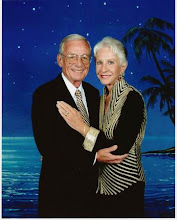What are the different stages of grief?
The person with cancer, spouses, parents, siblings and other family members will all experience grief. In general, grief has been described to occur in five stages. However, it is important to remember that people experiencing grief may move in and out of these stages in their own time and in their own way.
- Denial
Denial is a stage where people try to believe that the cancer diagnosis is not happening to them or their family. One may feel numb or in a state of shock. Denial is a protective emotion when a life event is too overwhelming to deal with all at once. - Anger
Anger is a stage in which you understand the cancer diagnosis but are very upset and angry that it has happened to you, a friend or family member. One of the best ways of dealing with bursts of anger is to exercise or participate in another type of physical activity. Talking with family and friends, other people who have cancer and the hospital staff also may be helpful. The person with cancer also may be able to express his or her anger either verbally explaining how he or she feels by writing in a journal. - Bargaining
Questioning God, asking “Why me?” and “What did I do to deserve this?” are common questions in this stage. It is normal for the person with cancer to make bargains with themselves or God in hopes that bargaining will make the cancer diagnosis go away. Guilt is a primary emotion during this stage. Searching for something that you personally did, which could have contributed to the cancer, is all part of bargaining. People tell themselves or God that they promise not to do something they previously did (such as arguing with family members), or to start doing something they have not done (such as going to church regularly) in exchange for their recovery. - Depression and sadness
This stage of grief is one in which the diagnosis of cancer can no longer be denied and those involved may feel a profound sense of sadness. These feelings are normal. This stage can be accompanied by physical changes such as trouble sleeping or excessive sleeping, changes in appetite, difficulty with concentrating on simple daily activities or feeling a constant fear that someone else in the family will be diagnosed with cancer. It is important to talk about depression with a health care professional such as a social worker, counselor or meet with a support group to help you cope with your feelings. - Acceptance
Acceptance is a stage in which you have accepted the cancer diagnosis and are at a point where cancer has been incorporated as part of your life. You have made an adjustment to your illness. Acceptance does not mean that you will never feel other emotions, but usually families find that they are better able to manage their lives overall upon reaching this stage. Going through the grieving process is the best way to cope with a cancer diagnosis. By giving yourself and your family permission to grieve, you will be able to cope.




Cheryl... Thank you for blogging about the levels of grief. Sometimes we forget that this is a process all will go through at some point in their life. To see it written helps us realize that we are not crazy or selfish or whatever. With that... I also don't believe you to be selfish on the eye surgery. You want the best for Jeff and when I read about what the eye doc said... I immediately thought about on the days that I might not feel great as long as my hair looks good I feel better... I know.. not the same level of analogy.. but still an analogy. God Bless you, Jeff and your family.
ReplyDeleteI had not thought about it, but you are certainly correct that these stages will apply to family members as well as the individual who gets cancer. I have often thought that there is too much emphasis sometimes on paying attention to symptoms, getting check-ups, etc. It may be good advice to do certain things, but one can overdo. A person who gets sick should not feel as if it is his or her fault. Thank you for sharing how people do feel at various stages, and also how the stage actually helps in the end.
ReplyDelete